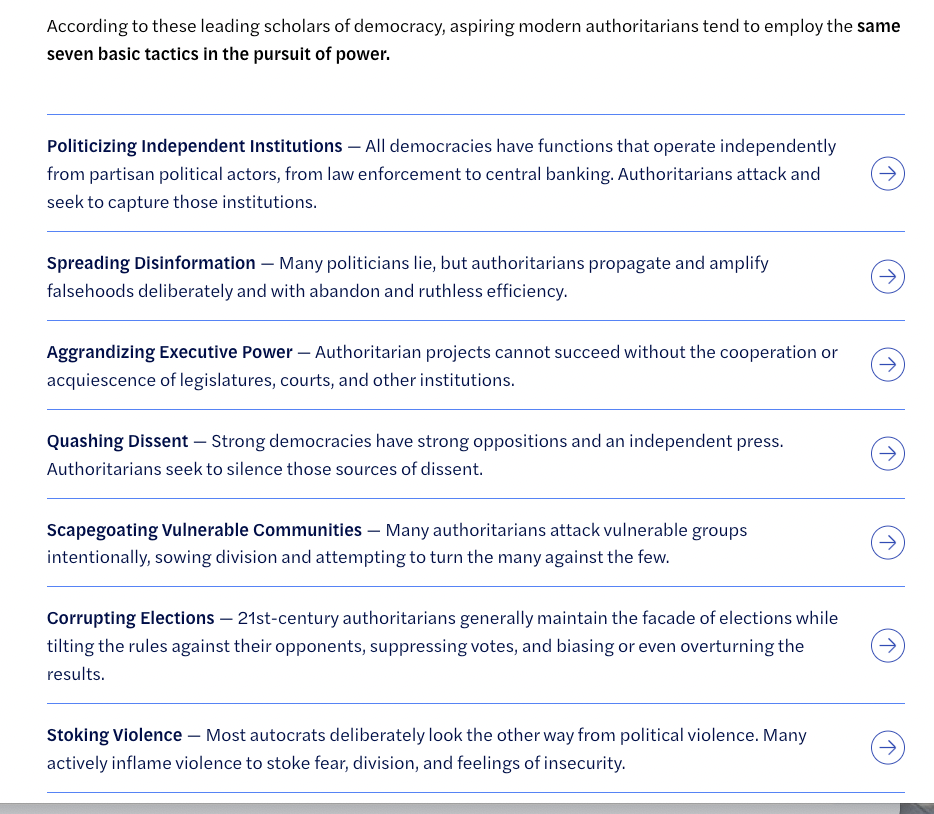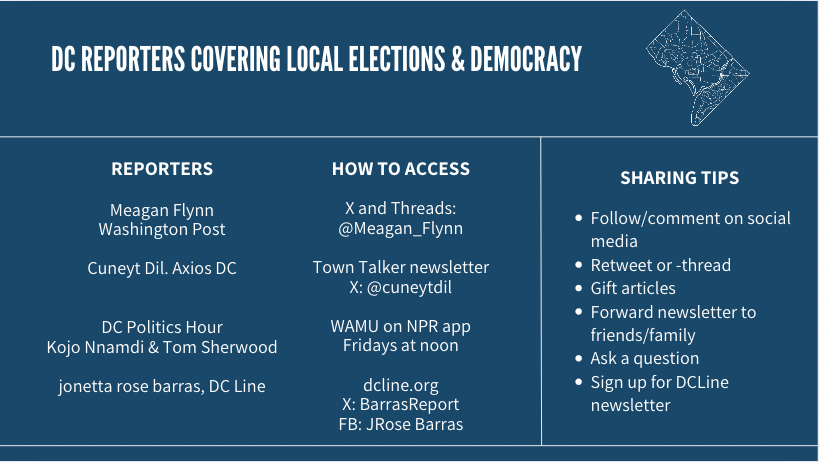Institutions are under fire and instability, the apparent goal

Governing bodies have long been targets of chaos actors. From the plot to kidnap Michigan Governor Gretchen Whitmer to claiming that Feds orchestrated the pandemic, attackers are able to sidestep the protections they enjoy from the government (the military, justice system, regulations etc.) to challenge those in power.
Today we're seeing a wave of attacks on non-governing institutions as well, especially those that receive public funding, from public media to libraries.
At NPR, CEO Katherine Maher was criticized after senior business editor Uri Berliner published an op ed claiming the outlet displayed liberal bias. (Note that Berliner just announced that he's joined Bari Weiss's The Free Press, the outlet that published his op ed).
Erik Wemple at the Washington Post did an analysis of Berliner's bias claims (gift article) and refuted the vast majority. What's more, NPR is a network of affiliates that have autonomy, serve their communities and arguably reflect the mix of viewpoints found there. And if you check media bias websites, Ad Fontes Media rates NPR (the national website) as center and All Sides, just left of center. You can read Maher's response to the claims, which was published on April 12.
NPR was founded as part of the Public Broadcasting Act of 1967 to provide programs and content to noncommercial and educational broadcast stations (and now, their websites). The act established the Corporation for Public Broadcasting (CPB) which directs 70 percent of its budget to NPR's over 1200 nonprofit member radio stations and Public Broadcasting System (PBS)'s over 350 member public television stations. The stations operate independently of and license programming, at their discretion, from NPR and PBS. Here's the Congressional act, which clarifies that CPB is not a government entity.
Regardless, extremists have been trying to defund CPB for decades, claiming liberal bias and government overreach. In 2023, a House subcommittee recommended that CPB funding be zeroed out by 2026. Fortunately, the Senate was able to reinstate funding this year.
I say "fortunately" because 99 percent of Americans have access to one or more public media outlets, according to the CPB website; they offer a vital public service. With outlets going under at a rapid pace and many confused about which sources they can trust, we need public media affiliates to keep us informed about what's happening in our communities and our nation, and hold power to account through reporting that's free of corporate, political or billionaire owner agendas.
Libraries
And then there's public and school libraries. Politically motivated book ban campaigns have left libraries scrambling to respond and protect staff, who are being harassed and even losing their jobs, like this librarian in Llano County, Texas. In Louisiana, legislators are pushing proposals to move public libraries under parish – and thus the ruling political party – control and subject librarians to fines and even jail time, again based on the misleading implication that books are somehow indoctrinating library patrons. According to advocacy group EveryLibrary, these proposals are "a waste of taxpayer time and money; this is pure political theater" that will, more than anything, open the door to further threats and harassment. (See EveryLibrary's excellent post about Transcending Politics Through Libraries.) Groups like Unite Against Book Bans and National Coalition Against Censorship are pushing back as well.
We've just started a project with Baltimore County Public Library, whose mission is to provide patrons with "opportunities to explore, learn, create and connect" and whose vision is of "Empowered and engaged individuals for a more inclusive and connected Baltimore County community." You'll find similar language on other public library websites and in our experience, an unfailing and courageous dedication to that mission. I'm guessing that many Americans have been blindsided by efforts to dismantle what have always been vital and neutral public institutions; an ALA-sponsored poll found strong bipartisan opposition to book bans (71 percent of respondents) and confidence in libraries' abilities to make good decisions about their collections. My uncle, a long-time librarian at Bucks County Community College, would turn in his grave if he saw these challenges. Or perhaps, as a gay man born in the 1930s, he'd find them somewhat familiar.
Higher education
The House continues to bring universities in to testify on their responses to the Israeli-Hamas conflict. There's a House Education and Workforce Committee hearing today on "Combating Workplace Antisemitism in Postsecondary Education"; reps from UC San Diego and Mt. St. Antonio College will testify. One hopes the tone will be better than on May 16, when the committee grilled UCLA Chancellor Gene Block, Rutgers President Jonathan Holloway, former Brandeis University President Frederick Lawrence and Northwestern University President Michael Schill.
Schill, a descendent of Holocaust victims and survivors, faced particular criticism for striking a deal with pro-Palestinian protestors to fund Palestinian faculty, students and an investment advisory committee in exchange for their taking down their student encampment. You can watch the hearing on PBS if you like; among other things, you'll again see rapid-fire speakers interrupting and railroading participants who speak more slowly and thoughtfully.
For another local source, here's a piece from the campus newspaper, the Daily Northwestern, that offers a good summary of Schill's testimony and quotes committee chair Rep. Virginia Foxx, who like Rep. Elise Stefanik at previous hearings reinforced disparaging and misleading messages in her closing comments that can then serve as headline fodder for fringe coverage and social media traffic.
I support any effort to shut down antisemitism. But as I watched the hearing, I marveled at the one-sided stances of many committee members. These members only raised concerns about Jewish students and referenced protesting students and faculty solely as perpetrators of violence. Since the members are in the majority, the effect was to suggest that the United States recognizes only one side of the conflict in Gaza.
Even worse was seeing representatives lecture Jewish men (Block is also Jewish) about antisemitic incidents without regard for their painful personal histories. Schill made it clear that he struck a deal with protestors to get the encampments, which were making Jewish students feel unsafe, taken down. Still, this action was framed by committee members as capitulation to violent protestors and grounds for his dismissal, in yet another no-win situation for a university leader.
Mitigating bias is complicated
Claims of bias are convenient; they can be thrown at just about anything and are difficult to refute. As a mentor of mine will tell you, all humans have biases; they're a natural function of the human brain, born of the need to protect ourselves against danger and manifested – often unconsciously – in how we treat others. Institutions are led by humans, so yes, there are biases in the mix.
The actual question is how well the institution is managing those biases in service of its mission. It's easy to write organizational statements; it's harder to manage the behavior of the people implementing them, who no doubt have varying capacities to see or mitigate their own biases. This is why organizations hold trainings on implicit or unconscious bias – so their staff can notice when their biases show up and adjust their actions as needed.
In the university story, biases against Palestinian victims in Gaza (largely Muslim) and the protestors shedding light on their plight (cast as liberal) were on display. Our biases stem from our multiple identities as people; committee members like Rep. Pramila Jayapal and Rep. Ilhan Omar shared quite different viewpoints and questions as you'd guess. As observers, though, we make a mistake if we see the hearing solely through the lens of identity – i.e. they're discriminating against Muslims and liberals again. While true, it can override an important question: Why?
The answer in this case is the greater political goal. The committee members in question, already in places of power due to their roles, were aggregating and leveraging biases to serve that goal, seemingly OK with the collateral damage: Institutions destabilized, leaders harder to find, staff planning their departures, students traumatized, learning disrupted. And a growing, collective cynicism about education, the adults involved and institutions overall.
When we learn about how biases are weaponized it helps us view these trends more strategically; in addition to seeing the "isms" at work we see the underlying agenda, and the impact if it's realized – which often threatens marginalized communities even more.
Congress won't be working to mitigate members' biases anytime soon, but organizations can, and are. They're helping staff adopt a growth mindset that says we're all learning how to better interact with others and set policy, mistakes are inevitable and part of the journey, and this is a safe space for that to happen.
With many organizations working hard to help improve their cultures and welcome viewpoint difference, it's tough to see elected representatives practicing personal attack, manipulative inquiry and us/them dynamics.
Knowledge acquisition at risk
Another important theme: Public media, libraries and universities are all independent entities that help people acquire facts and knowledge. Would-be authoritarians don't want people to learn and think freely; they want absolute control and to get it, will chip away at democracy, bit by bit. Here are the seven tactics they tend to employ, from Protect Democracy's Authoritarian Playbook (geared toward journalists but helpful for all). Pay particular attention to the first two:

A leading scholar on authoritarianism that you can follow is Ruth Ben-Ghiat of NYU (@ruthbenghiat on X/Twitter).
At Truth in Common we share these stories and analyses so we can work together to track the tactics and their destabilizing impacts. With entities already divided along political and cultural lines, global conflicts to take sides about, domestic and foreign actors taking advantage and digital algorithms super-sizing it all, it's a lot. Seeing the tactics being employed helps with sense-making and can thus balance the stress we're feeling. Knowledge is power.
On June 8, Cornell University's president of seven years, Martha Pollock, delivered her final speech to the campus community and alumni. While she faced plenty of challenges this year she was not brought in front of the House committee's firing line, and I often wondered why. Then a Cornell Judeo-Islamic studies professor we heard speak at Cornell reunion shed some light: Is it because Ithaca is a small media market and would offer less coverage of the theatrics than New York, Boston, Philadelphia or Chicago? (Ah hah, I said to myself; the media play is the thing.)
In fact, if you look at U.S. News and World Report's top 20 colleges by media market, all the universities that are also in major media markets have been brought before Congress except Rice, in Houston, and the University of Chicago. Then if you overlay the list of universities that get the most Federal funding for research . . . you see what I mean.
We will have plenty of destabilization this November. In conversation or on social media, we can ask: Is this a good time for that institution to be in flux, without leadership or a decent operating budget? How will staff and constituents be affected, and who will take over? Is this scapegoating really going to bring about the desired reform?
Truth in Common updates
With elections in over 50 countries and critical races in the U.S. this year, we're directing all our efforts to supporting democracy. We're showcasing examples of election-related disinformation, conducting state-based research and teaching about how "prebunking" works. Some recent events:
- On June 13, we shared resources and tips on How YOU can support free and fair elections this year with a group at DC's Cleveland Park Library. With zero representation in Congress and the House meddling in our electoral processes, DC folks need strategies.

- On June 15, we did a keynote address on "Local News: Challenges & Opportunities" at the League of Women Voters of Arlington and Alexandria City, VA's annual meeting.
If you'd like to host a similar event, online or in-person, please email deanna@truthincommon.org.
You're invited
If you’re in the mid-Atlantic, I hope you'll join us for an event this fall. Our workshops feature local reporters as guest speakers, games and refreshments where possible, and we're offering an 8-week, online course for the first time!
IN DC: Disinformation: How to recognize and disrupt it
- Saturday afternoons July 13, 20 & 27, 2-3:15 pm
Petworth Neighborhood Library
Follow this link to register - Wednesday evenings July 17, 21 & 28, 6-7:15 pm
Palisades Neighborhood Library
Check library website next week for registration link
IN BALTIMORE: Two truths and a lie: Separating fact from fiction
- Tuesdays July 9, 16, 23 | 5:30-7:00 pm
Baltimore County Public Library, Perry Hall branch
Follow this link to register - Tuesdays August 13, 20, 27 | 5:30-7:30 pm
Baltimore County Public Library, Woodlawn branch
Check library website in July for registration link - Wednesdays September 11, 25, October 2 | 5:30-7:30 pm
Baltimore County Public Library, Cockeysville branch
Check library website in July for registration link
IN SOUTHERN PENNSYLVANIA AND MONTGOMERY COUNTY, MD (Links coming soon):
- Thursdays August 15 & 29, Tuesday Sept. 10
Grove Family Library, Chambersburg, PA
Library website here; no registration necessary - Mondays September 23, 30, Oct 7 | 6-7:15 pm
Wheaton Library (Montgomery County Public Library), MD
Check library website in August for registration link
AND – OUR FIRST 8-WEEK, ONLINE COURSE starts in late September runs through the election:
- Thursdays September 26-Nov 14, 1:45-3:15 pm
OLLI (Osher Lifelong Learning Institute) at American University
$300 membership fee per semester gets you three classes (study groups)
Our programs, research and writing take resources. Please consider making a donation to support our work.
News from the states
Pre-bunking is the act of sharing falsehoods that have been disproven with audiences so they are more apt to be skeptical when similar falsehoods show up in the future. It's central to our work. Some examples:
PENNSYLVANIA: VoteBeat and SpotlightPA debunk "more votes than voters" claim
Carter Walker's article reveals the individual who generated the falsehood that there were over 200,000 more votes than voters in Pennsylvania in 2020 – Heather Honey – and thoroughly debunks her research, which "achieved a remarkable level of national salience among the far right, despite being replete with errors."
NEVADA: Republican election clerk's attackers include her own friends and neighbors
Cindy Elgan's attempts to refute falsehoods about election fraud and a "deep state cabal" were not only ineffective, they sparked claims the 20-year public servant was an election saboteur herself (New York Times gift article).
MARYLAND: State elections office combats election-related disinformation
In Chestertown in late April, Jared DeMarinis, Maryland's State Administrator of Elections, assured voters that Maryland elections are free, fair and safe, but said disinformation is "like a wave crashing down on us; it's too much for my agency to combat." At the League of Women Voters of Kent County-sponsored event, he implored folks to help, offering a new web page where Marylanders can report election-related mis- and disinformation and encouraging them to follow the Maryland State Board of Elections on Facebook or X/Twitter to stay current.
I chimed in to offer fact-checking resources when someone asked – here's what I shared:
A: If you're wondering about whether a piece of information is true, others likely are as well. You can:
- Follow resources like factcheck.org from the Annenberg Public Policy Center at the University of Pennsylvania, AFP Fact Check or Politifact via their websites, social media, or newsletter
- Larger outlets like Associated Press, Reuters, USA Today, NPR and the Guardian have fact-checking teams and will publish their fact checks, so you can follow them also;
- A former fact-checker started a platform for crowd-sourced fact-checking – check it out at NewsDetective.org;
- If you're wondering about an article, you can Google the outlet name, author or pieces of content to check for legitimacy and see if the content has been pulled from somewhere else; and
- Some are using AI itself for fact-checking. See this op ed by the co-founders of India-based Factly as an example.
Interns and a budding media literacy educator in the house
Join me in welcoming our summer interns!
- Anthony Lall Lewis (Cornell ‘25), our intern for user experience, is helping manage and integrate our platforms and develop educational content.
- Ruth Charles-Pedro (Cornell ‘25) is helping with our digital community and social media.
- Krish Gupta (Haverford '26) is conducting a cool research project that looks at reporting on election-related disinformation in all 50 states.
- Nat Fernandez (SCAD '26 and my daughter) is taking the lead in developing some animated educational content.
In addition, Karina Gupta (Stuyvesant School '25) wrote a great article on the psychology of misinformation for her school newspaper and would like to cohost a media literacy event there in the fall.
If you’re on LinkedIn, please consider giving these folks a follow by clicking on their links above. While you're at it, follow the Truth in Common page as well. Our Instagram feed is coming soon!
Financial support from supporters like you is much needed and appreciated. Thank you for being part of the Truth in Common community!
About the author: Deanna Troust is founder and president of Truth in Common and 3 Stories Communications. Visit www.truthincommon.org or follow Deanna on LinkedIn, Threads, Twitter, or Instagram.

